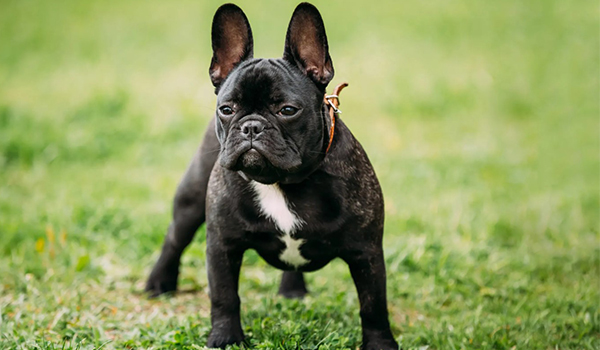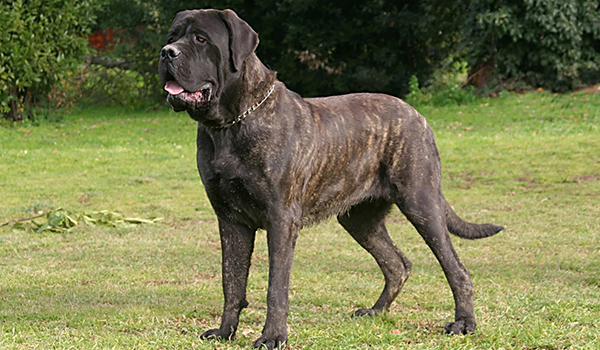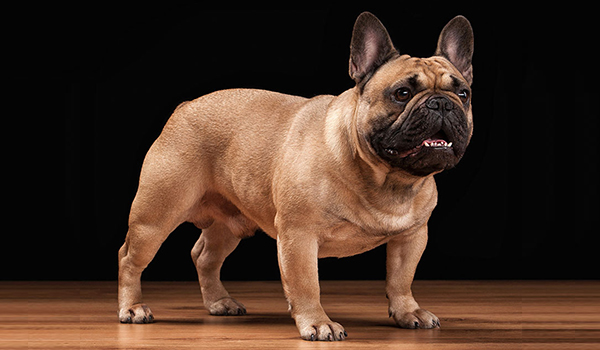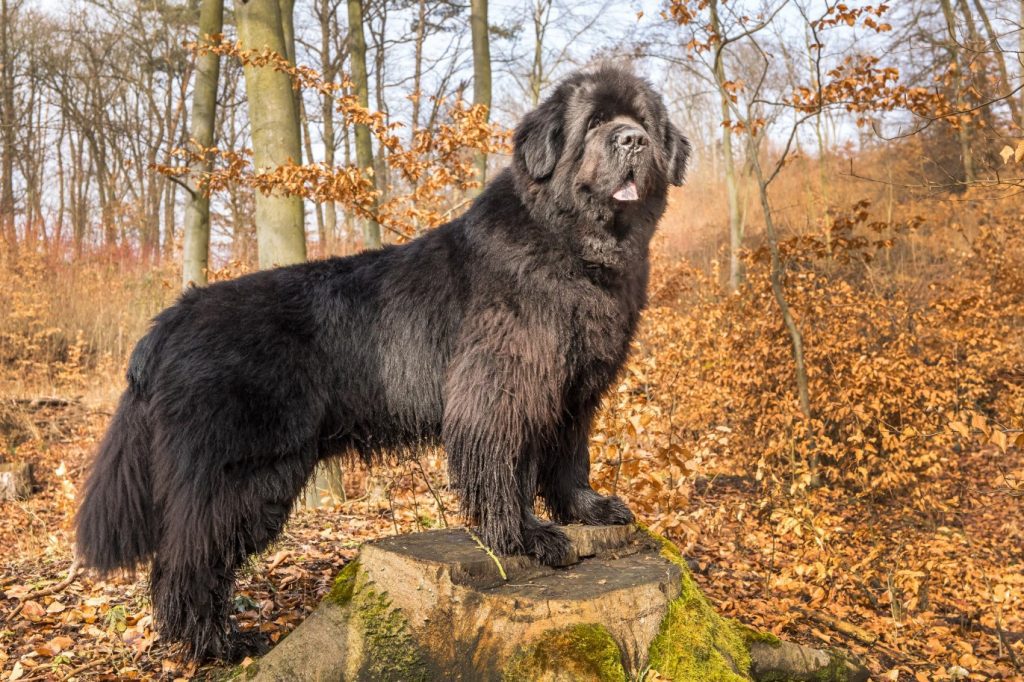
The Newfoundland is the quintessential “gentle giant.” A breed of immense size, strength, and profound sweetness, they are known as much for their heroic water rescue instincts as for their calm, patient, and devoted nature. With their massive, bear-like head, thick waterproof coat, and soulful expression, they are a breathtaking sight. But their true majesty lies not in their stature, but in their serene and loving temperament.
This comprehensive guide will explore the reality of life with a Newfoundland to help you determine if you have the space, budget, and heart to provide the home this magnificent and nurturing breed requires.
Breed Overview
- Group: Working
- Height: 26 – 28 inches (at the shoulder) for females; 28 – 30 inches for males
- Weight: 100 – 150 pounds (females); 130 – 150+ pounds (males)
- Life Span: 9 – 10 years
- Coat: A heavy, water-resistant, double coat with a soft, dense undercoat and a coarse, flat or wavy outer coat. Colors are solid black, brown, gray, or Landseer (white with black markings).
A Brief History: The Lifeguard of the North Atlantic
The Newfoundland originated on the island of Newfoundland, Canada, as an all-purpose working dog for fishermen. Their webbed feet, powerful swimming stroke, and water-resistant coat made them ideal for pulling nets to shore and rescuing people from the icy North Atlantic waters.
The dog’s strength and endurance also made it capable of pulling carts laden with fish and wood. Their legendary lifesaving instincts are not trained but innate; a Newfoundland in water will instinctively perform a rescue. Their intelligence, loyalty, and gentle nature with children were prized by their owners, and these traits remain the hallmark of the breed today.
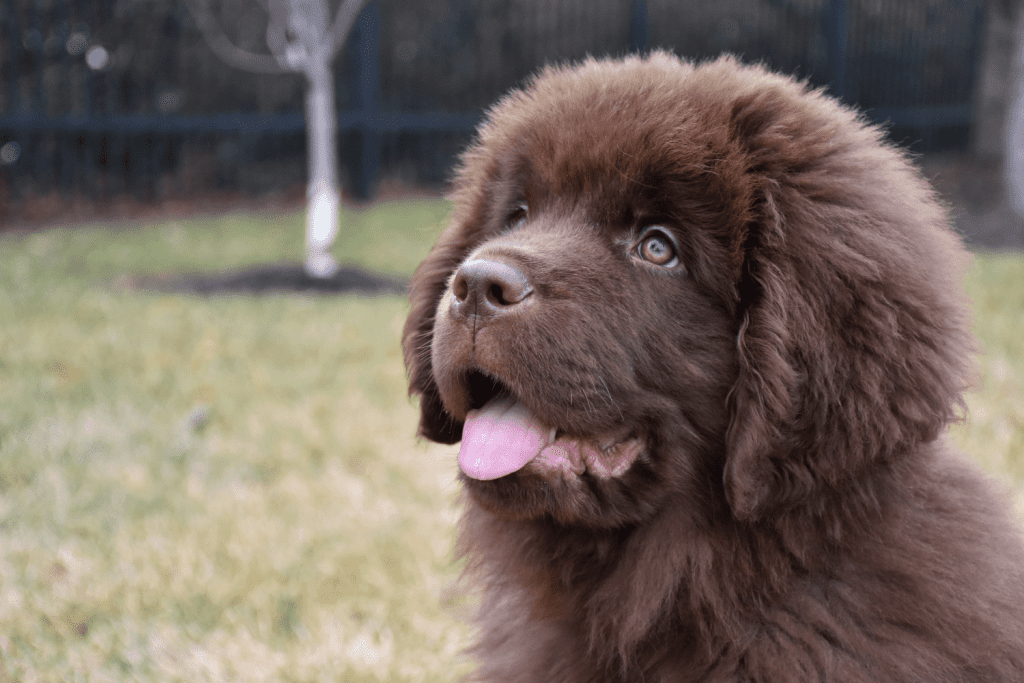
The Newfoundland Temperament: The Ultimate Nanny
The Newfoundland’s temperament is its crowning glory. They are the embodiment of patience, gentleness, and devotion.
- Gentle & Patient: Newfoundlands are famously gentle, patient, and incredibly good with children. They are often called “nanny dogs” for their watchful and tolerant nature. Their sheer size and calm demeanor can have a soothing effect on a household.
- Sweet-Tempered & Friendly: They are typically friendly and outgoing with everyone, including strangers and other animals. They are not guard dogs in an aggressive sense, but their size alone is a powerful deterrent.
- Intelligent & Trainable: They are highly intelligent and eager to please their families, making them relatively trainable for their size. However, they can have a stubborn streak and may move at their own, slower pace.
- Calm & Steady: They are remarkably calm and low-energy indoors. They are happy to be a “rug dog” and are not hyperactive or destructive when their needs are met.
- Loyal & Protective: Their loyalty is profound. They are naturally protective of their family, often positioning themselves between their owners and a stranger until they deem the situation safe.
Caring for Your Newfoundland
Exercise: Moderate Needs for a Giant Breed
While they are powerful athletes in the water, their exercise needs on land are surprisingly moderate.
- Daily Requirements: 30-45 minutes of daily activity is sufficient. This should include leisurely walks and gentle play.
- Swimming is a Bonus: If you have access to safe, clean water, swimming is the ideal exercise for a Newfie. It provides excellent, low-impact exercise that is easy on their joints.
- Avoid Overexertion & Heat: Their large size and heavy coat make them highly susceptible to heatstroke. Exercise must be limited to the coolest parts of the day, and they must always have access to a cool, air-conditioned environment.
Grooming: A Significant Commitment
That magnificent, weather-proof coat requires dedicated and frequent upkeep.
- Brushing: Brush every other day, if not daily, with an undercoat rake and a slicker brush to prevent severe mats and control shedding. During their biannual “coat blow,” daily brushing is non-negotiable.
- Bathing & Drying: Bathing a Newfoundland is a major project. More importantly, they must be thoroughly blow-dried after every bath or swim. A damp undercoat can lead to painful hot spots and skin infections.
- Drool: Be prepared for drool. Newfoundlands are famous for their slobber, especially after drinking or eating, or when they are hot. Keeping a “drool rag” handy is a fact of life.
- Other Needs: Regular nail trimming, ear cleaning (their floppy ears are prone to infection), and keeping the hair between their foot pads trimmed.
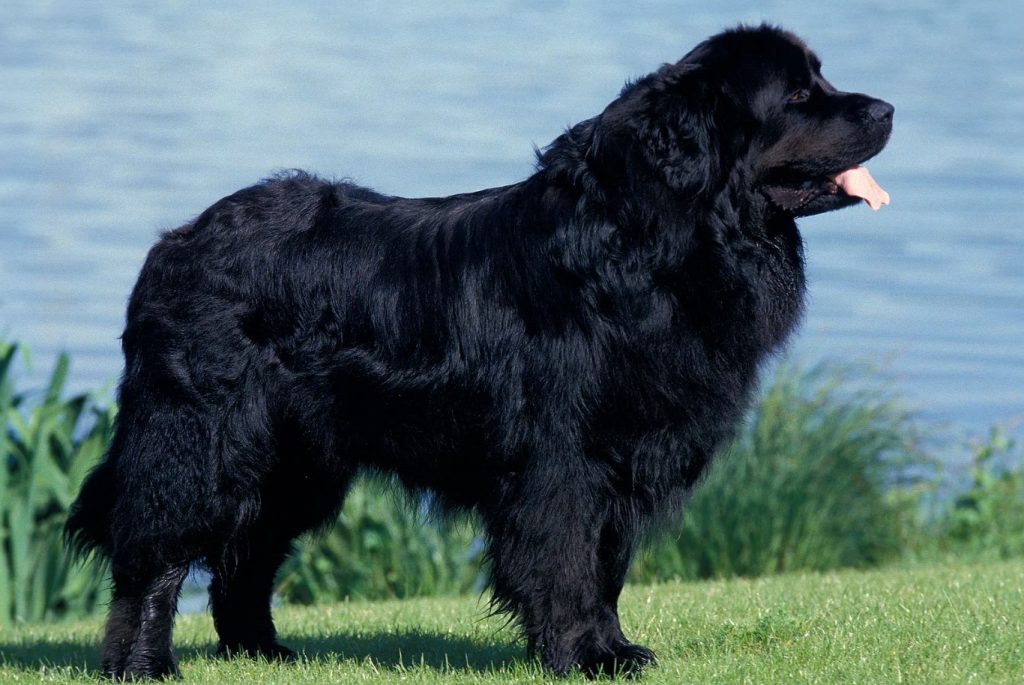
Training: Building a Trusting Partnership
Training is essential for managing a dog of this size, but it must be approached with patience and kindness.
- Start Early: Begin socialization and puppy training as soon as possible. A well-mannered puppy grows into a manageable adult.
- Focus on Manners: Essential skills include:
- Leash Manners: Teaching them not to pull is crucial for your safety.
- Not Jumping Up: A jumping Newfie can easily knock over an adult.
- Basic Obedience: A reliable “sit,” “stay,” and “down” are fundamental.
- Use Positive Reinforcement: They are sensitive souls who do not respond well to harsh methods. Training should be based on positive reinforcement, patience, and respect.
Health: What to Be Aware Of
Tragically, the Newfoundland’s majestic size comes with a shorter lifespan and predisposition to serious health issues.
- Heart Conditions: Subaortic Stenosis (SAS) is a serious and common congenital heart defect in the breed. This is the leading cause of death in young Newfoundlands. Reputable breeders will have their dogs’ hearts screened and certified by a veterinary cardiologist.
- Hip and Elbow Dysplasia: Common in giant breeds, these degenerative joint conditions can cause severe arthritis and pain.
- Bloat (Gastric Dilatation-Volvulus): This is a life-threatening emergency for deep-chested breeds. Preventative measures are non-negotiable: feed smaller meals, avoid exercise around mealtimes, and know the signs.
- Cystinuria: A hereditary kidney disorder that can lead to the formation of bladder stones.
Is a Newfoundland Right For You?
A Newfoundland might be your perfect match if you:
- Have a very large, spacious home with room for a massive dog bed and easy outdoor access.
- Want a gentle, calm, and patient family dog, especially with children.
- Live in a cool or cold climate or have a consistently air-conditioned home.
- Are prepared for the significant financial commitment of feeding and providing veterinary care for a giant breed.
- Don’t mind copious amounts of drool, dog hair, and regular grooming.
You should absolutely reconsider if you:
- Live in a small apartment or a home with many stairs.
- Live in a hot or humid climate.
- Are on a tight budget (food, medication, and vet bills are substantial).
- Want a long-lived breed (their lifespan is heartbreakingly short).
- Are unprepared for the emotional and financial toll of potential health issues like SAS and joint dysplasia.
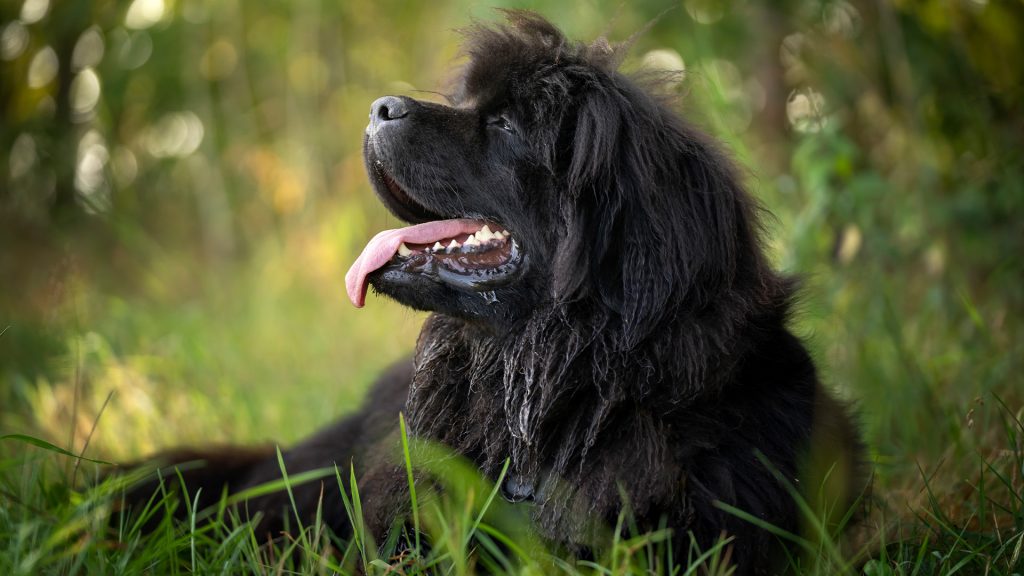
Finding Your Newfoundland
- Reputable Breeders: This is paramount. A responsible breeder will:
- Health Test: Provide cardiac clearances from a cardiologist, OFA/PennHIP certifications for hips and elbows, and cystinuria tests.
- Be Transparent: Discuss health issues in their lines openly and be honest about the breed’s challenges and lifespan.
- Focus on Temperament: Breed for the stable, gentle temperament the breed is known for.
- Rescue & Shelters: Newfoundland-specific rescues are very active. Many dogs are surrendered due to their size, cost, or shorter lifespan. Adopting an adult can be a wonderful way to offer a second chance.
Understanding the Cost: The initial purchase price from a reputable breeder in the U.S. is typically $1,800 to $3,000+. The lifetime cost of ownership is the real consideration. Owners must budget for massive amounts of high-quality food, professional grooming supplies or services, and substantial veterinary bills. Pet insurance is highly recommended.
Bringing a Newfoundland into your life is a commitment to a larger-than-life companion. In return for your dedicated care, you will gain the most gentle, loyal, and nurturing friend—a true gentle giant whose presence is a lesson in patience, devotion, and unconditional love.

